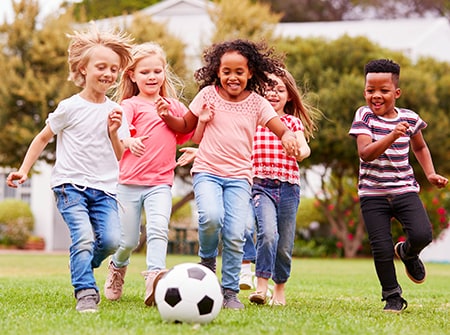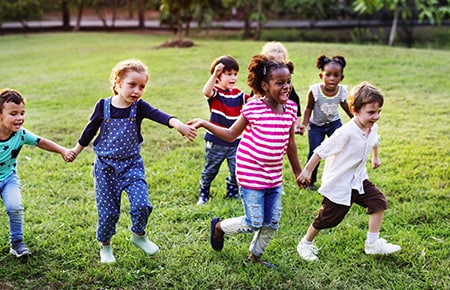Special Awareness Days
First Wednesday of February
Global School Play Day

Ready to Order?
If you are ready to order, please contact Customer Service:
Telephone: 1 (800) 361-6128 Fax: 1 (800) 563-9196
Introduction
It is February, and in Canada, that means winter! Whether you live in the milder climate of British Columbia or the colder areas of Nunavut, the Yukon or the Northwest Territories, you will know that winter brings cold, rain, and snow, as well as crisp sunny days that remind you of how beautiful our country is in every season.
Global Play Day was initiated to remind us that unstructured, unplanned play is not only fun, but an important part of every child’s development. It encourages social skills, relationship skills, creative thinking, and physical activity. Unlike many of the electronic games that students choose to play, unstructured and unplugged play requires communication, respect, interactivity, compromise, and cooperation.
The goal of this day is to have students engage in unplugged, no battery, no screen, no technology play! All ages can benefit from this experience.
Before engaging in this fun day, you may want to watch the Ted Talk by Peter Gray, who shares his thoughts on the decline of play and how it has impacted our children.
Activity Bursts
All Grades
Here are a few guidelines and suggestions to make your Global School Play Day an annual event.
- Listen to the official GSPD song at: https://www.globalschoolplayday.com/
- Depending on the interest and age level of your students, you might invite them to learn all of or part of the song. Maybe they want to put actions to the words; create an additional rap verse, etc.
- Sign your school or class up on the official GSPD website at: https://www.globalschoolplayday.com/
- Look at the Global map on that page and see how the idea of unstructured play has grown across the world. Ask the students why they think play is so important. Discuss.
The rest of the information you will need is found on the website listed above. You can play inside or outside, with or without game boards.

Consider:
- Exercising the mind by playing word games, putting together a challenging puzzle, or adding a new change to an old game.
- Building a fort, maze, or a snow creature, or playing winter tag.
- Creating a game that could be played inside or outside, alone or with family.
- Building a “mini gym” in your home and participating in a supervised fitness regime.
- Engaging in online yoga, mindfulness, or relaxation activities.
- Don’t let age or stigma be a barrier to play. If a grade 6 student wants to build something with Blocks, that is fine. No gender stereotypes either. (i.e. Girls play with dolls; boys play with trucks etc.) Discuss this with your students prior to the play day.
Ask students to report back after their play activity.

The length of time for the play day is up to you and your schedule.
Process the activity the next day by asking:
- What did you enjoy most about your play day experience?
- Do you think even adults can play? Explain.
- Why do you think play is important?
- Did you find that you missed your electronic devices during this play day?
- Why do you think we did not allow electronic devices to be a part of this day?
- Did you learn anything about yourself or others during this experience?
- If you wanted to have a playday next year, what suggestions would you have to make it even more successful?
- Did you feel that your body and mind benefited from your play experience? How?
- Share some creative ways to engage your body and mind in some form of play during difficult times.
Close by inviting students to engage in wireless play more often. Encourage them to invent new games, play outside more in any weather and change up the rules of some of the games they play often.






